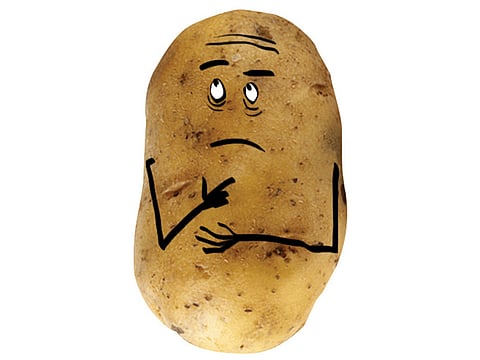Delicious roast spuds are part of the good life. Poor cancer advice isn’t
Potentially carcinogenic acrylamides lurking in our favourite foods is actually old news. This latest episode just proves how vulnerable we still are to scare stories

There wasn’t exactly a muted reaction to the news that your breakfast may kill you. United States President Donald Trump may start a war on facts, a missile may go astray, but it turns out that the final straw is telling people that their toast is bad for them. According to the Food Standards Agency (FSA), burnt toast is potentially bad, as are crisps, and well-browned roast potatoes. With this news, something has stirred deep within us. You will only take away our delicious crispiness by prising it from our cold dead hands. We will fight for the right to fluff: That is, to increase the surface area of potatoes before roasting them in order to maximise the brown, crispy bits. Isn’t that Jamie Oliver’s contribution to humanity? We don’t want warm bread, we want actual toast, toasted. Don’t even start me on crisps.
But the latest abomination, according to the FSA, is that we are consuming too much acrylamide. This has been shown to increase the risk of cancer in mice and therefore is likely to have the same affect on humans. It is a chemical produced by cooking starchy foods at high temperatures. Which is, of course, the miracle of deliciousness that we must now shun, or moderate — if not give up altogether.
Actually, none of this information is new. We knew in 2002 that burnt foods suspected of being carcinogenic, and we’ve since learned that the process of curing is considered risky. We are now told that sugars — basically, what carbs turn into — are the work of the devil, so we shouldn’t be eating them crisped to perfection anyway. But hey, life too short and all that ...
Or we could be making it so. The problem with all this is partly to do with our understanding of risk, which is extremely poor, and partly to do with the message everywhere now that cancer is reducible to lifestyle. Scientists have to give us the information they have. But we need more context, or otherwise their studies just become a list of things that are bad for us, because ... rat studies. The mature response would be to eat less of the bad things and give up all that is lovely. Live a life of vegetables and the odd nut. Clearly most of us never reach this level of maturity. And anyway, I don’t buy this whole “you are what you eat” argument.
Cancer is not a choice or simply a result of diet. This is a vast over-simplification. We can say that two-thirds of cancers are related to lifestyle “choices”: Obesity, smoking and drinking primarily, but a third aren’t. We have to take in genetic and environmental factors. What Susan Sontag described as “disease-producing lifestyles” we could now say is basically modern life. There are carcinogens in the environment as well as those we choose to put into our bodies. Pinning cancer to environmental factors is extremely difficult because epidemiologists rarely get the chance to link individual cancers to specific pollutants.
So the lay person has to wade through this advice on eating without comparative studies, and without fully understanding the risks. Yes, burnt toast might up your risk of cancer. (How much would you have to eat, and for how long though?) Here are a few other things that will also increase your risk: paint, vinyl, Chinese salted fish, contraceptive pills and wood dust. We have to navigate our way through this minefield as best we can.
All those alternative health books that somehow blame people for their own illness — attributing it to their repressed-anger “cancer personalities” — are now being rewritten from the perspective of clean living. The proponents of this talk as if we are all only individually responsible for our own health. They hold up the myth of the ever well, pure, toxin-free body. Obviously they live in a different environment to the rest of us. Planet Denial.
Of course we can all take better care of ourselves. Eat more veg and steam more stuff. Moderation and all that. Crisped-up carbs may indeed be the opium of the masses, and the masses will hold on to them. We may seek to extend, life, but someone also has to talk about the point of living. If roast potatoes aren’t part of that, I don’t know what is.
— Guardian News & Media Ltd
Suzanne Moore is an award-winning columnist for the Guardian.
Sign up for the Daily Briefing
Get the latest news and updates straight to your inbox



